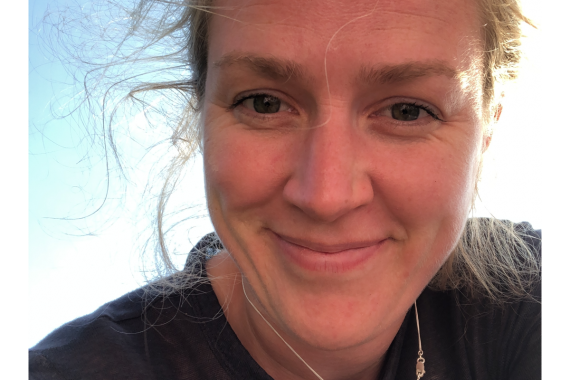Language matters – take my word for it

The language used in the consulting room can be a potent medicine: the right words, delivered
at the right moment, are transformative. We can all think of a time when someone in our lives shared a story that remained with us long afterwards, but I’m not sure if we’re always aware of just how critical language is to the success of our therapeutic interactions. Our words matter, though.
Connection through language is one of the foundations of compassionate general practice. As a doctor, I know that my words have gravity because months and years later, patients have returned and told me what I said to them in previous consultations. Through this process, I began to realise the power I wielded, and the need for care and consideration when sharing information with them.
A few years ago, I read Edith Eger’s memoir The Choice, which describes how she built a life after
her experiences in Auschwitz during the Second World War and, ultimately, how she became a psychologist in the USA. One of many takeaways for me was how she opens her client meetings. She asks, ‘How could I be useful to you today?’, whereas a doctor may typically open with, ‘How can I help you today?’. Dr Eger advocates that this subtle change in our language shifts the consultation dynamic. ‘How can I be useful to you?’ asks, ‘How can I support you as you take responsibility for yourself?’. It introduces doctor and patient as co-creators within the consultation.
Before I left general practice, I changed to Dr Eger’s opening line in my consultations and I believe there was a palpable change in the dynamics of my interactions. In fact, a number of patients commented on it as if they, too, felt the intended shift at play.
There is a general agreement within the medical profession that plain language is key to effective communication, but we’re not always good at sticking to it – this is likely a product of many things. For example, Medical English – the secret language of our occupation – has been hard-earned over years of study. In some way, this lexicon forms part of our identity. And, at least in my training, we were never given the opportunity to translate medical language into digestible real-life language. Anecdotal feedback from colleagues running final year medical student exams this year revealed that this was something candidates struggled to do, too. Is it that we’re trying to look clever and demonstrate that we know what we’re talking about by using difficult words?
The language we use also matters because patient understanding is key to shared decision making. They cannot consent to, or discriminate between, options that they do not fully comprehend. These facts demonstrate the need for us to de-jargonise our consultations and lose the euphemisms from our lingo. We should avoid explaining that someone’s idiopathic chronic cardiomyopathy needs an ‘echo’, or that the ‘shadow down below’ on imaging could be ‘something nasty’.
Our clarity and simplicity are further important as the population we serve has varying degrees of understanding. According to the National Literacy Trust, 16% of adults are ‘functionally illiterate’ in the UK, and the average reading age is 9 years old. Using this as a proxy for understanding complex language, it’s essential that we recognise the need to tailor our language to our patients’ specific circumstances. I can think of a couple of times when patients I have known for some time have divulged that they’re unable to read and, until that point, I had been naive to the possibility. Raising awareness is the first step to catering appropriately for all our patients.
Perhaps, then, we should begin by examining our language in the places where our words are emotionally loaded and assign blame or ‘patient role’. Small changes in our words can make major differences. For example, seeing those who are ‘suffering from’ as those ‘living with’ means that patients are empowered to take ownership of their situations. And consider the mental shift in the diabetic whose blood sugar levels are ‘poorly controlled’ when they take on a new life as someone simply with ‘higher than recommended blood glucose levels’.
It’s time to reimagine our language at work – doing so gives us scope for a deeper connection with our patients. What small changes could you make?
Dr Lisa Finnikin recently stopped working as a salaried GP in Sutton Coldfield
Pulse July survey
Take our July 2025 survey to potentially win £1.000 worth of tokens

Related Articles
READERS' COMMENTS [1]
Please note, only GPs are permitted to add comments to articles











the problem is time for patient and patient would like to be listen ,
language is a lot less important compare with above
Regards
Cezary